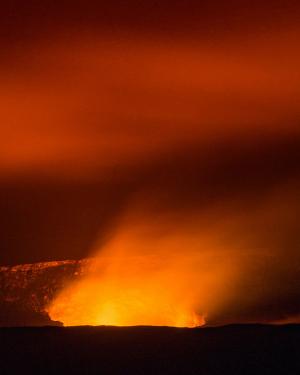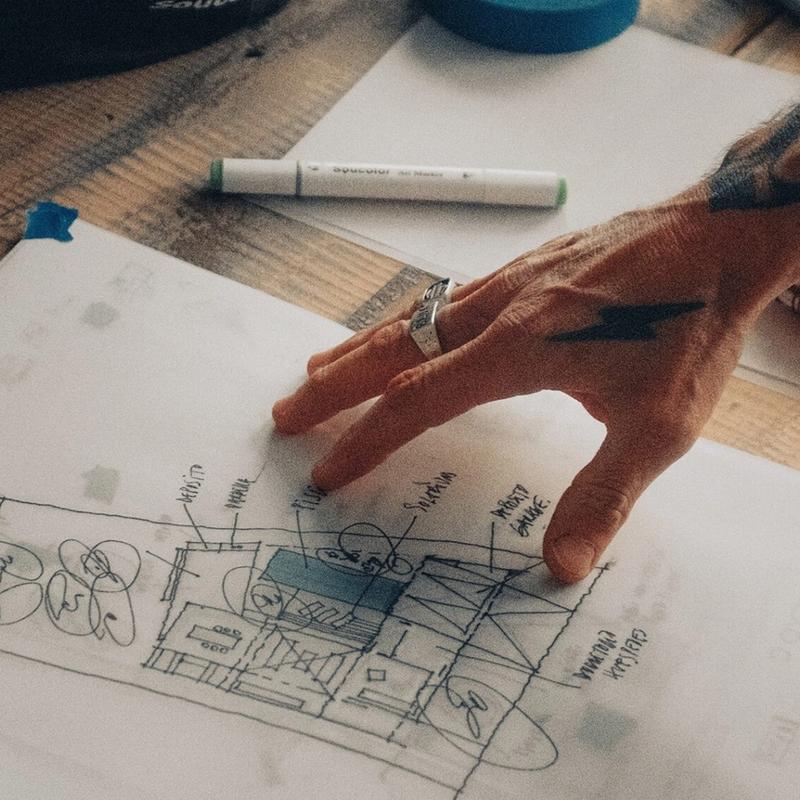“What do you do for a living?” This is a common question, usually meant to grease the skids in conversation. We use it at church or at parties—often when we’ve run out of other questions to ask. We’re hoping the answer will provide a point of contact to keep the exchange going, responding with answers like, “My sister is a teacher! What subject?” If there’s no point of contact, the dialogue is likely doomed, and it’s time to get more chips, or refill the drink.
But questions about our work can often be stressful, because with it we feel the need to explain the significance of what we do. I remember telling another guy at church that I work in construction sales only to receive a look as if I told him I sell electric bikes to fish!
We may not feel like we can justify the significance of our daily work, but there’s something called “the doctrine of continual creation” that provides meaning for what we do—not just in our jobs, but in each of our everyday tasks.
What is Continual Creation?
Continual creation doesn’t get the hype that initial creation—when God created all things out of nothing—often does. What it means, though, is that while God did initially create out of nothing by his word (see Gen. 1:1–3; John 1:1–3), he has also charged this creation to build upon that initial word through ongoing creation. This doesn’t mean God’s initial creation was faulty, but that he created it with such a dynamism that it was empowered to produce an increase in creation itself!
As Michael Horton puts it, in Genesis there is “God’s command to creation to put forth its own powers with which he has endowed it and within which the Spirit is operative.”[1] We see this pattern in Genesis 1:11–12:
And God said, “Let the earth sprout vegetation, plants yielding seed, and fruit trees bearing fruit in which is their seed, and each according to its kind, on the earth.” And it was so. The earth brought forth vegetation, plants yielding seed according to their own kinds, and trees bearing fruit in which is their seed, each according to its kind. And God saw that it was good.
Horton points out that with the command to “be fruitful and multiply” in verses 22 and 28, humans as well as all of creation are enlisted in this task of continuing creation.[2] This ongoing creation isn’t just a theory but also a calling for us.
Why Continual Creation Matters for You
We need to be carried by a sense of significance when we punch in every day. We need to feel like what we’re doing matters, be it in states of singleness or marriage, child rearing or infertility, great wealth or modest means, high-ranking office or as a minimum wage day-laborer, artist or accountant. In every vocation (calling), we need to know that what we do makes a difference, especially in the mundane and the muck of what most of our callings entail—needy newborns, unrealistic customers, or empty bank accounts. Continual creation ensures that as mundane as it may feel, what we’re doing builds upon God’s initial creation. As Horton goes on to say, the Holy Spirit is actually at work in beautifying and preserving the world through our activity.[3]
In our creaturely endeavors—building, nurturing, creating—we’re bringing about greater fullness of what creation was intended to be. It’s as if we’re taking this world from being simply a house and making it a home. You could say we’re making it a bit cozier. And we do all of this for the good of our neighbors, as Gustaf Wingren writes: “God pours out his gifts, seeds, herbs, and edible creatures. Our only care ought to be what we should do with all the good that God has made, so that it may benefit our neighbor.”[4]
Our Creational Works Long for Redemption
Just as God’s original creation longs for redemption, so too do our creational works. They can’t—nor are they intended to—provide ultimate hope.
Rather than seeking to usher in the new creation, our creating, along with all of “creation was subjected to futility, not willingly, but because of him who subjected it, in hope” (Rom. 8:20). Thus, we’re free to create, with the satisfaction and beauty of knowing our creating furthers God’s work, principally to the aid of our neighbors. This freedom is furthered by trusting that our creating doesn’t have to work under the burden of earning what only God will give us in Christ: “that the creation itself will be set free from its bondage to corruption and obtain the freedom of the glory of the children of God” (Rom. 8:21).
[1] Michael S. Horton, The Christian Faith: A Systematic Theology for Pilgrims on the Way (Grand Rapids, MI: Zondervan, 2011), 345.
[2] Horton, The Christian Faith, 345.
[3] Ibid.
[4] Gustaf Wingren, Luther on Vocation. Trans by Carl C. Rasmussen, (Eugene, OR: Wipf and Stock, 2014), 8.






